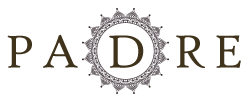A Guide to Self-Awareness and its Benefits

What is self-awareness? This is a question that reaches into many philosophical, spiritual, religious and psychological areas. This article is going to be a guide that aims to answer that very question: what is self-awareness? Of course, it will also look at how to be self-aware and raise your own life awareness, explaining the benefits of doing so along the way. So, whether you’ve already begun your journey into self-awareness or are looking for ways to start, you should be ready to begin by the end of this article.
What is Self-Awareness?
In simple terms, self-awareness is having the ability to look within yourself in order to observe, understand and modify your own thoughts, behaviors, and attitudes. You’ve probably noticed either in yourself or with someone else that much of what we do is automatic.
Here is a perfect example of this: imagine for a moment that you’re walking down the street and bump into somebody you know. Not a close friend or family member but certainly someone with whom your a friend.
If they asked you how you were, what would your response be? For many of us, it would be “I’m good, how are you?”
Learning how to be self-aware is all about noticing all these automatic actions and instead choosing to make a conscious decision for each instance. As we go through life, we spend much of our time on autopilot.
Whether you’re driving to work, cooking a meal, watching television, running or socializing with friends or family, there is a rarely a situation where it’s impossible for us to fall into this frame of mind.
It’s all too easy to turn a blind eye to the awareness life offers us. While the benefits of this autopilot mode are obvious, there are some serious disadvantages.
Why Raise Self-awareness?
There are two key disadvantages to explore when considering why raising your self-awareness is a positive change to make in your life. For starters, when you’re on autopilot, you’re missing parts of your life.
This will vary from person to person depending on how often they pause conscious decision making. Just think of it this way: if you’re on autopilot for just 1 hour, 5 days a week (perhaps on your way to or from work) then in one year you’ve lost 250 hours of conscious activity.
Think of what you could accomplish in that time if you chose to improve on a skill. The other main disadvantage is disconnecting from ourselves and those around us. When we become more self-aware, we are more involved in every aspect of our lives.
We don’t allow ourselves to make uninformed decisions based on underlying desires or cravings, we play a larger role in interacting with our friends and family and overall, we have more control over our own lives.
It also allows us to better understand how people perceive us as well as understanding not only how we perceive them, but also their point of view as well. So let’s take a look at becoming more self-aware.
How to be Self Aware
We’ll explore some simple yet effective techniques to help you on your journey to self-awareness. It’s important to understand that this isn’t a quick fix and won’t happen overnight.
You’re going to have to be patient and allow several weeks, maybe even a few months before you’ll notice any significant change. It’s definitely worth the effort and wait though!
Meditation
One of the easiest methods for raising your self-awareness is meditation. We tend to go through life with other people’s opinions weighing heavily on our minds. This influences our actions, decisions and even our own thoughts.
Eventually, this can even creep into our own minds and pretty soon, we behave differently because society or smaller groups within it have programmed our mind. Without even realizing it, we may put on a mask when we leave our house in order to fulfill our own mind’s desires.
Meditation allows you a break away from such pressures, like the Angel Meditation. So, during meditation, there is nobody around for whom you need to wear a mask: including your own mind. As we enter into a meditative state, we strip away these pre-conceived ideas and simply replace them with awareness…self-awareness.
With practice, meditation can allow us to feel/see/notice our thoughts as they appear in our conscious mind, allowing us to examine each thought and determine whether it is something we need or something that’s appeared of its own accord.
Self-reflection
Another useful tool is self-reflection. This is where you ask yourself certain questions with honest answers in order to determine whether you are the person you wish to be.
The questions can vary drastically but let’s take a look at some examples:
- “If I saw someone displaying the same body language as me, what would I think they were feeling?”
- “Is my behavior something I’d want in a friend?”
- “Is the energy I exude more positive or negative?”
- “If I died now and looked back on my life, would I be proud?”
By answering these questions honestly, we can paint a picture of ourselves in a manner similar to how others perceive us. We can, however, take this a step further.
Connect with your Angels
If you’re worried that you’re perhaps seeing yourself from a skewed angle, there is always the option of contacting your angels. There are a number of benefits to taking this course of action.
For starters, they can provide guidance and assistance with beginning your journey to self-awareness. After all, self-awareness is a positive step along your spiritual path and as such, they will always be eager to support such a change.
Secondly, they can offer insights into yourself on a deeper, spiritual level that perhaps hadn’t even crossed your mind. Just remember that while they will provide guidance, raising your self-awareness is a journey you have to make on your own so be prepared to put the work in, even with the help of your angels.

